8 Countries Where You Can Become President With a Second Passport
October 6, 2023
Dateline: Bógota, Colombia
Being a permanent resident of a country generally conveys many, if not all, of the benefits of citizenship, with the only exceptions being the right to vote and the right to carry a passport. These rights are only available to those who have earned the title of citizen.
Yet, while naturalized citizens of most countries obtain full rights to participate in their new country and obtain a passport for international travel, there is one benefit of citizenship they often lack: the right to run for elected office — more specifically, the right to be President.
While each country has its own policies, I am unaware of any country in which naturalized citizens cannot vote or obtain a passport. The same cannot be said for those naturalized citizens hoping for an opportunity to hold certain elected offices.
Even countries that actively offer to naturalize foreigners apply restrictions to the rights of naturalized citizens. For example, when Zambia offered citizenship to white Zimbabwean farmers who could help improve crop yields, they still limited their rights to hold office in Zambia.
The United States is a popular example of this form of restrictive citizenship. It is widely known that only native-born US citizens can run for the office of President of the United States ( also known as the Natural-born Citizen Clause). The law has led to debate over the eligibility of both John McCain (who was born on a military base in Panama) and Ted Cruz (who was born in Canada) to run for president in recent years.
Other countries that actively encourage naturalized citizens and even foreigners to serve as judges or ambassadors hold the top elected offices closed.
Most Nomad Capitalists will not trouble themselves over such restrictions — their focus is on business, lifestyle design, and investment. But a country’s policy on dual citizenship and who can hold the highest office in the nation does say quite a bit about the country’s true feelings about naturalized citizens.
So, whether you are seeking a second passport in order to hold elected office (or the idea has crossed your mind) or you just want to know which countries have an open attitude toward dual nationals, here are some of the countries where you can become president even if you’re born elsewhere.
Armenia
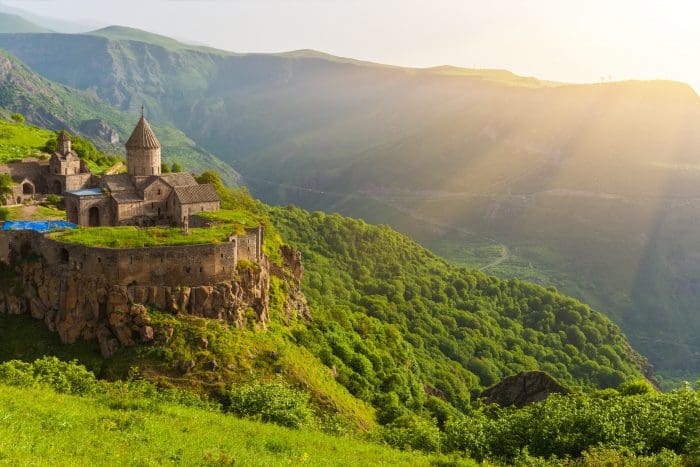
Armenia, like most countries in Europe, extends citizenship based on the principle of jus sanguinis, or citizenship by blood, versus jus soli or citizenship based on the location of your birth. This means that no matter where you were born if your parents are Armenian, you have the right to Armenian citizenship. Conversely, if you were born in Armenia to non-Armenian nationals, you would not have a claim to Armenian citizenship.
However, it is also possible to apply to become a naturalized citizen of Armenia. To do so, you must have legally resided in Armenia for the last three years, have sufficient knowledge of the Armenian language, and be well-acquainted with the Constitution of Armenia. If you have provided “exceptional service” to the country, these requirements may be waived.
Either way, it is possible to become a naturalized citizen of this former Soviet republic.
As of 2007, Armenia also allows for dual citizenship. The catch is that all male dual citizens are required to serve in the military regardless of where they live. There is an option to do 46 months of civil service instead of the standard 24 months of military service, but if you have done neither by the time you reach the age of 27, you must pay a fine of $4500 to avoid prosecution for evading military service.
If the thought of forced military service turns you off to the idea of becoming a citizen of Armenia, there is one perk: it is one of the countries where you can become president. Article 50 of the Constitution drafted in 1995 states that anyone 35 or older who has been a citizen of the Republic of Armenia for the previous ten years and resided in the country for the same period with the right to vote is eligible for the presidency.
Austria
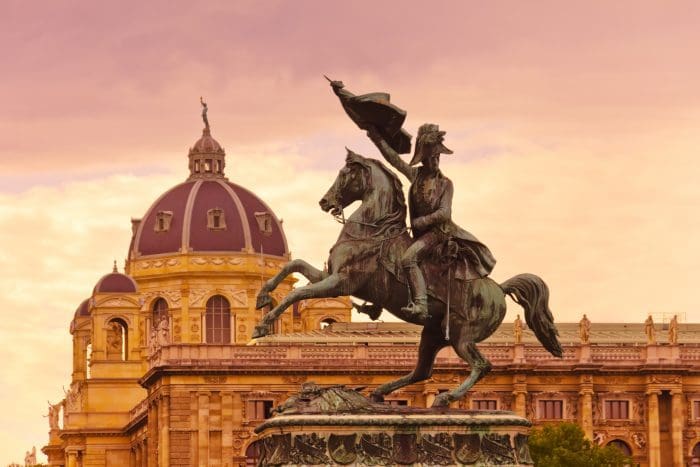
Austria also bequeaths citizenship based on jus sanguinis, irrespective of place of birth. The country also allows for naturalized citizens to hold the office of President or Chancellor.
In Austria, the president is mostly a ceremonial figurehead. Their only real power is in appointing and swearing in the Chancellor. While tradition usually dictates that the Chancellor be the leader of the largest party in the National Council, the President technically has the power to appoint anyone eligible to be elected to the National Council.
This means any Austrian over the age of 18 — including naturalized Austrians.
The downside is that, unlike Armenia, Austria does not allow dual citizenship. The path toward naturalization is also much more difficult. To qualify, you must have resided in Austria for ten consecutive years, have a clean criminal record, prove sufficient means of subsistence, renounce any former nationality, demonstrate your knowledge and positive attitude toward the Republic of Austria, and prove your German language skills.
The requirement to renounce your other citizenships can be waived in exceptional cases, but the chances of gaining favor in the eyes of Austrian voters while maintaining ties to another country are slim to none. If it’s a life of politics you are looking for in this country, you need to go all in.
Azerbaijan
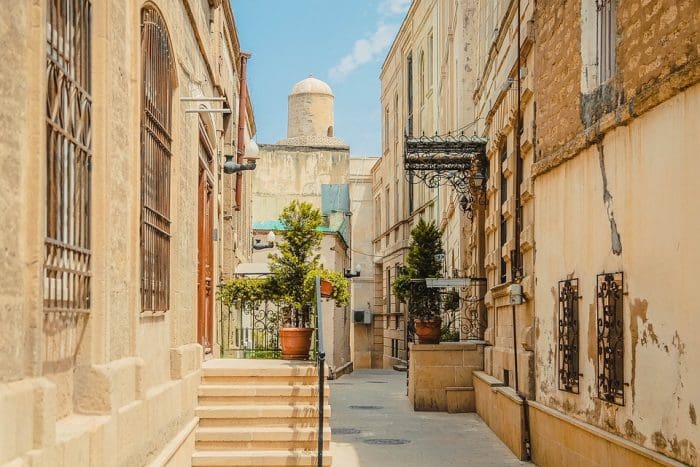
Azerbaijan is one of the eight countries where you can become president, no matter if you are a natural-born or naturalized citizen — on the conditions that they renounce their other citizenships before taking office. So, while your second passport may give you the opportunity for leadership, you will have to give up your first passport to actually get the position.
The President of the Republic of Azerbaijan is the head of state and the commander-in-chief, representing the country at home and in foreign policies. To be eligible for the position, you must be no younger than 35, possess the right to vote, hold a university degree, have a clean criminal record, and have been a permanent resident of Azerbaijan for ten years.
If you are fine holding any public office, the requirement goes down to seven years of permanent residence and a minimum age of 18.
But those are not the numbers that really concern me when it comes to Azerbaijan. From 2006 to 2008, the country had the world’s fastest-growing economy with an average of 28% annual growth. Those are the kind of numbers that pique my interest as a businessman and investor.
I recently visited Azerbaijan to see if I could open a bank account there with my economic citizenship. My little venture worked, but more importantly, I saw a country with potential — which is why I would rather spend my time investing in the country instead of trying to become its leader.
France

France is one place where an individual who is both foreign-born and a dual citizen can technically become president. There is no need to renounce any other citizenship or be able to claim birth on French soil; in France, a citizen is a citizen… at least according to the Constitution.
The French Constitution stipulates that a candidate must be a citizen, be at least 18 years old, be qualified to vote, have a clean criminal record, and — curiously — have a bank account. The same qualifications are required for any public office. In the end, the President is nominated by a vote of at least 500 qualified elected officials, such as mayors and Parliament members.
France is also one of the few countries on this list that has actually had foreign-born presidential candidates. As recently as 2012, Eva Joly ran as the elected presidential candidate for France’s Green party. Joly was born in Norway, but moved to France at age 20, married a Frenchman, had her children in France and worked almost her entire professional life as a French magistrate.
Most people objected to her election, though. They were a bit suspicious of her thick Norwegian accent and generally opposed to her political views. That said, France has also had candidates from Senegal and Morocco. None have been successful so far, but that does not mean that there is no possibility of it ever happening.
Just know that while you may be allowed to run for office in many different countries, the battle to really be accepted as a true citizen of your new country of citizenship may be an uphill battle.
Germany

Dual citizenship is a bit more complicated in Germany than in France. It is freely permitted for all EU and Swiss nationals and it is tolerated for people from countries like Iran, Algeria, Syria and several Latin American countries that do not allow their citizens to renounce their citizenship.
More recently, it has also been extended to children of foreign parents who have been raised in Germany. They must have lived in Germany for at least eight years and be able to prove that they attended a German school or vocational training for at least six years. Under this new law, even those who were previously denied German citizenship (or were forced to give it up at age 23) can now reapply and become a dual citizen of Germany and their home country.
Once they do become a citizen, any German who can vote in Bundestag elections and who is 40 years or older can run for the office of Chancellor — Germany’s head of state. The current German Chancellor, Angela Merkel is considered to be the most influential woman on the planet by Forbes Magazine.
Anyone looking to hold such a powerful position, especially as a naturalized citizen, will have to be in it for the long game to ever hope for success.
Great Britain
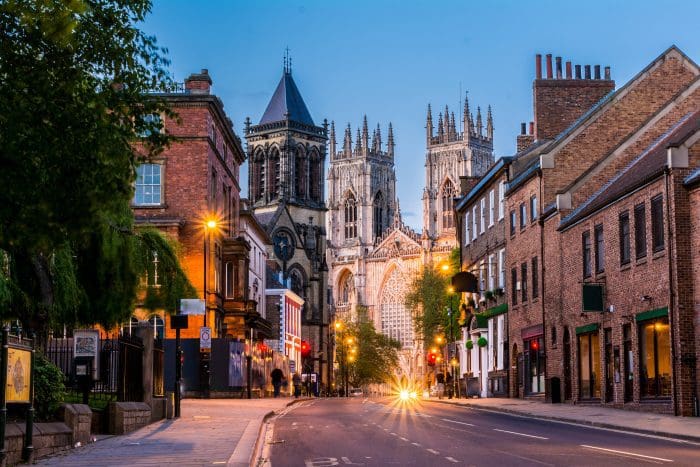
Great Britain has had several Members of Parliament (MPs) who not only originate from another country but also hold dual citizenship. At present, the Conservative MP for Stratford on Avon, Nadheim Zahawi, is a naturalized British citizen originally from Iraq.
But Great Britain takes things one step further, not only can naturalized British citizens hold office but Commonwealth citizens and citizens of the Republic of Ireland have the possibility of becoming an MP as well without needing to obtain British citizenship.
And, since the Prime Minister is just an MP who is the leader of their party who is invited to become the PM by the Queen, it follows that any citizen of Great Britain, any of the Commonwealth countries, or the Republic of Ireland could become Prime Minister. And in the case of someone from a Commonwealth country or Ireland, they would not have to be a British citizen in order to hold the position.
To date, Bonar Law — who was born in the British colony of New Brunswick (now Canada) — is the only foreign-born British Prime Minister. He held the office from December 1916 to March 1921.
But it’s never too late to try the system again!
Israel
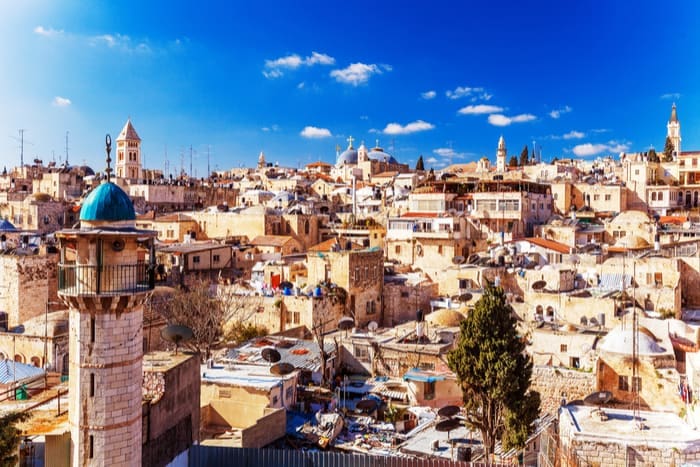
Because of its arduous past and unique Law of Return, Israel is a nation composed of citizens from many different countries. Due to these uncommon circumstances, there are no restrictions on where an Israeli Prime Minister may have been born in order to qualify for the office.
Before 1996, every Israeli Prime Minister except for Rabin was born abroad: Ben Gurion was born in Poland, Moshe Sharett and Levi Eshkol were born in Ukraine, Golda Meir was also born in Ukraine and lived in the United States before she moved to Israel, Begin was born in Belarus, Shamir was born in Russia, and Peres was born in Poland.
So, no, you do not have to be a natural-born citizen to become Israel’s Prime Minister.
Israel allows its citizens to hold dual or even multiple citizenships, but those who wish to serve in any government position must relinquish all other citizenships in order to qualify for service. Members of the Knesset, for example, cannot pledge allegiance unless they have renounced their foreign citizenship.
The same goes for anyone wishing to hold the office of Prime Minister. Even Benjamin Netanyahu, who was the first Israeli Prime Minister to be born in Israel, had to give up his US citizenship before taking office.
As a side note, all Israeli citizens are subject to mandatory military service. So, not only will political power in Israel come at the price of relinquishing your dual citizenship it will also cost you t
If you want to be the Prime Minister of Israel, you can do so, as long you make peace with the fact that you’ll have to go through two years and eight months of compulsory military service if you’re a man, or mere two years in case you’re a woman.
Somalia

The last country on this list is evidence that who can become president of where and under what circumstances has not been pushed to its final limit. As of February 2017, the African nation of Somalia has a president who is a citizen of both Somalia and the United States.
Mohamed Abdullah Mohamed was born in Somalia but spent the majority of his adult life in the United States where he came in the 1980s to work for Somalia’s ministry of foreign affairs. In 1985, he moved to Washington DC and worked at the Somalia embassy for four years.
Mohamed applied for asylum in 1988, moved to Buffalo, New York, became a dual Somali/US citizen, and spent the next few decades working for the US government at the city, county and state levels in everything from housing to employment to transportation.
Then, in 2010 he became Somalia’s Prime Minister at the request of the country’s president, Sheikh Sharif Ahmed. Though he was dismissed in June 2011 due to political infighting, his departure incited violent protests from the Somali people who widely supported him.
That popularity and a desire to change things for good in Somalia led Mohamed to return to his country of birth and run for election as President. And, despite having spent the past thirty years in the United States working for another government, he won. Typically, service to another government would exclude someone from holding public office, but Somalia knew who they wanted as President and they made it happen.
Many other African nations have similar experiences where their diaspora have returned to take office and make a change based on the experience they have gained and the progress and development they have witnessed elsewhere. For instance, Liberia elected Ellen Johnson-Sirleaf in 2006 — the first democratically elected female president in Africa who just so happened to have dual Liberian/German citizenship.
The debate still continues as to whether or not such practices will continue in the future, but many nations recognize that they want someone who has experience living in other parts of the world. The same knowledge and experience from travel that can benefit your business and investments can benefit the growth and development of nations.
As globalization continues, more and more countries and populaces could begin to recognize this truth and look for leaders who have a more global background. While many countries in the West begin to look inward and draw on their nationalistic tendencies, countries that are ready to emerge into the twenty-first century may be willing to reconsider what it means to be a citizen and who is fit to hold positions of leadership.


How to Get UAE Citizenship – The Complete Guide
Sovereignty – both national and personal – shapes ambition, secures wealth, and defines status in a shifting global order. For the high-achieving global citizen, acquiring a second or even third passport is more than a lifestyle upgrade; it’s a strategic move in long-term financial and geopolitical positioning. But not all citizenships are created equal – […]
Read more

A Gateway to Central Asia: New Kazakhstan Golden Visa Program for 2025
Central Asia just raised the stakes in the golden visa game. In May 2025, Kazakhstan officially launched a 10-year Golden Visa program in an ambitious move to position the country as a serious contender in the global investor migration space. At a time when other international regions are rolling back their citizenship and residency options, […]
Read more

Top Countries Offering Golden Visas in 2025
Residency is no longer about lifestyle – it’s about leverage In an increasingly unpredictable world, Golden Visas offer something most governments can’t: certainty in exchange for capital. They are more than migration tools; they are strategic safeguards offering residence rights, future citizenship, global mobility, and access to tax-friendly jurisdictions. For investors, entrepreneurs and globally minded […]
Read more




